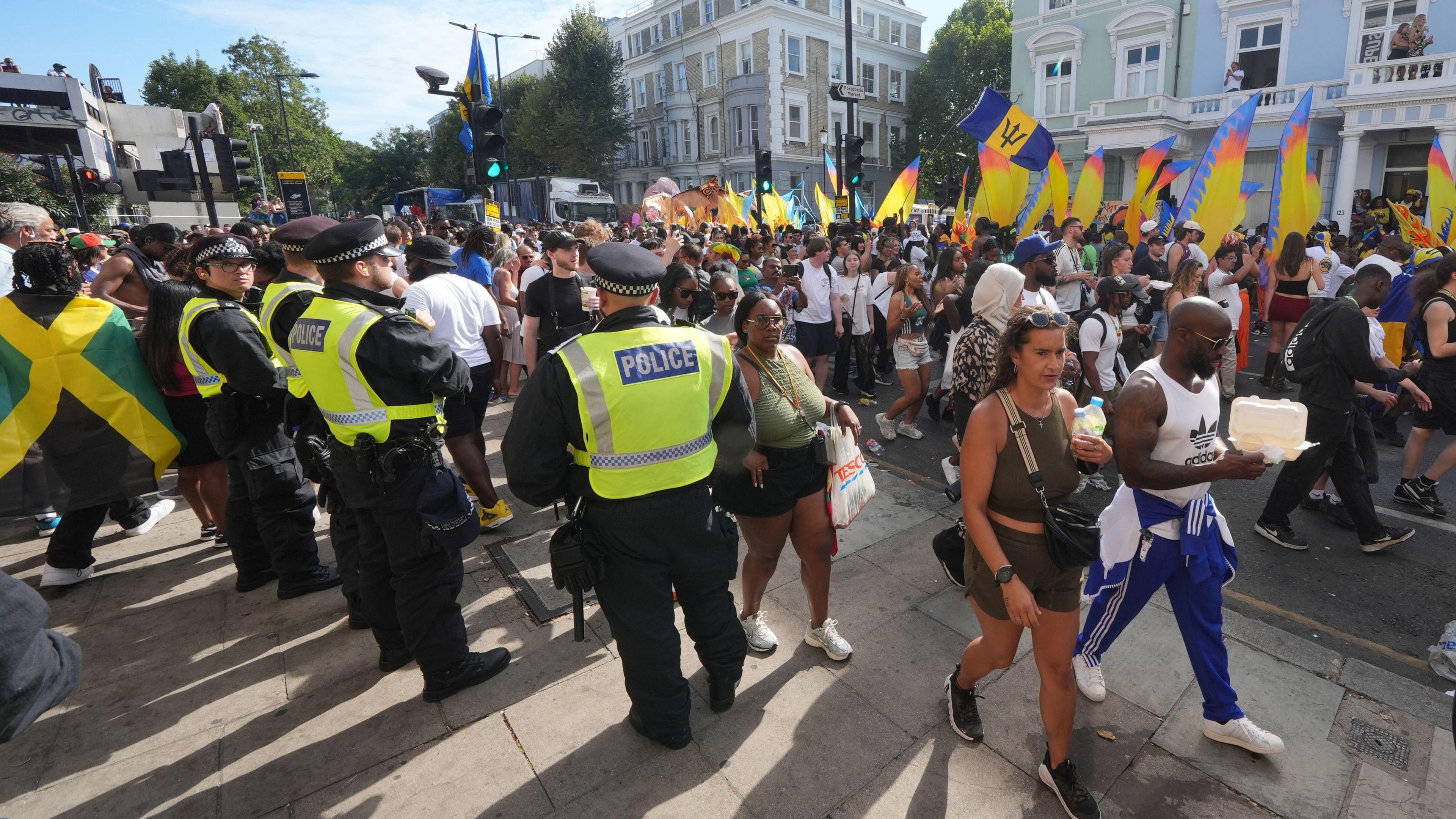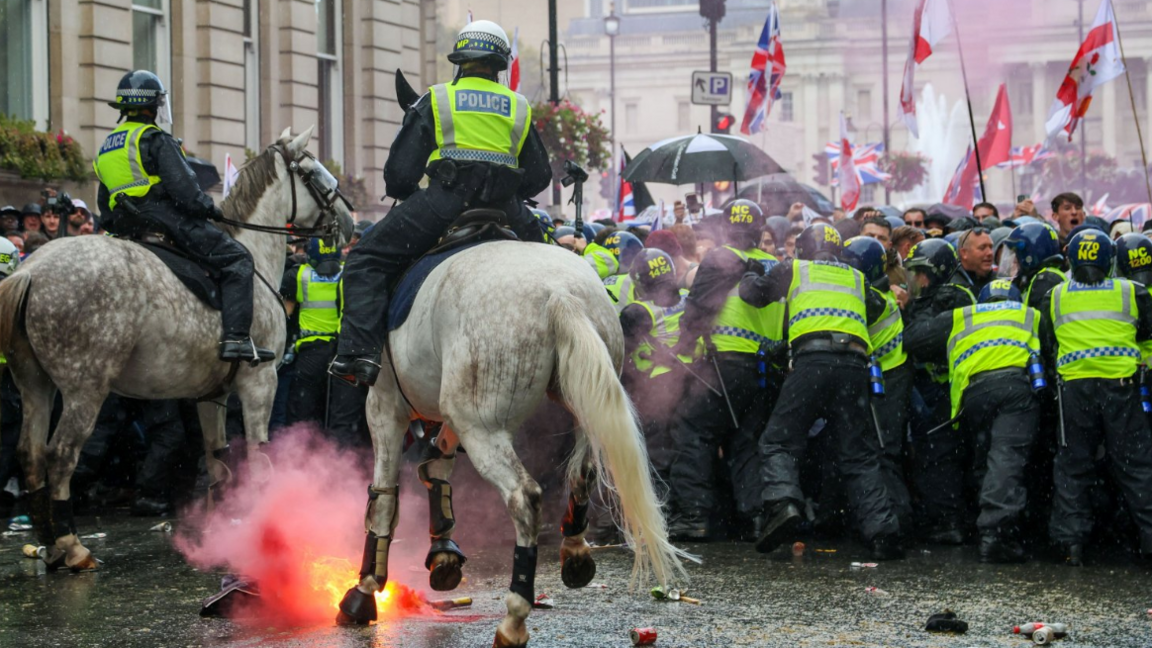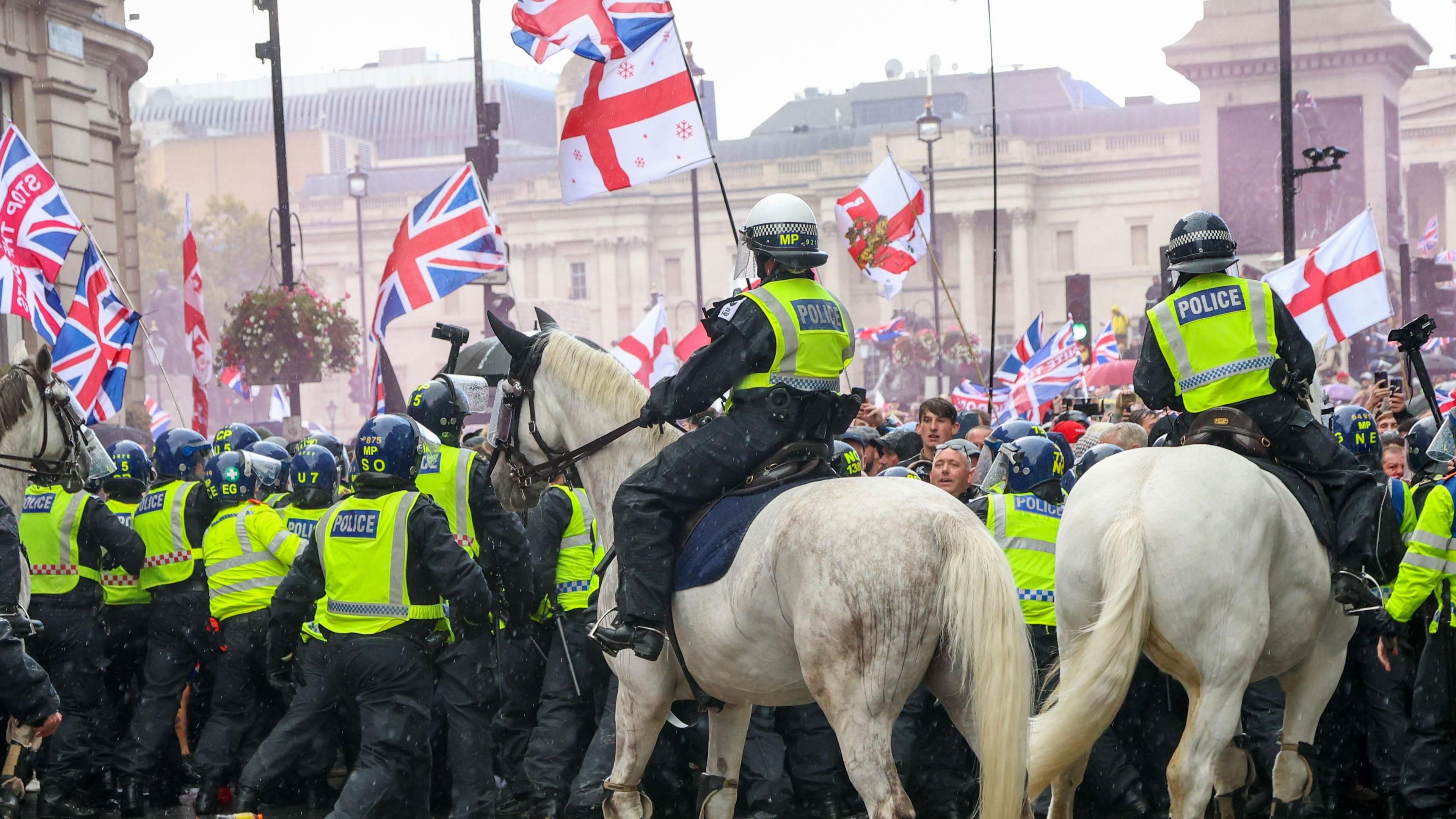No 'basis' for face scanning at rally, Met says

Sir Mark said using facial scanning at protests could have "a chilling effect"
- Published
Live facial recognition (LFR) technology was not used to police the Unite the Kingdom rally in London on Saturday as there was no "intelligence basis" for it, the Metropolitan Police Commissioner has said.
Some 26 police officers were injured when violent disorder broke out at the protest organised by the far-right activist Tommy Robinson, which was attended by an estimated 150,000 people.
At the London Policing Board on Tuesday, Sir Mark Rowley said that although the technology was effective, it should not be used as a "mass surveillance tool".
However, Sir Mark said he would not rule out deploying the tool in future protests, if there was intelligence about planned violence.
LFR is used as a crime detection tool to scan crowds and large spaces and match the images with those on police databases, allowing officers to trace and intercept possible suspects.
Sir Mark was also asked by members to explain the force's approach to the rally, compared to how it dealt with Notting Hill Carnival, when LFR was deployed.
Met Police officers clash with protesters at Tommy Robinson rally
"It's really important we're deploying it where there's an intelligence basis to do so," he told board members.
"That's one of the safeguards - that you're not using it as mass surveillance tool - you're using it in particular places where there is intelligence based to say this may actually make people safer."
Sir Mark added that although there may be a case for using the technology at future protests, it would need to be balanced with freedom of speech concerns, as it could have a "chilling effect".
"And the intelligence picture at the weekend - that we had before the event - didn't justify that," he added.

Facial scanning was used at the Notting Hill Carnival, where crime was down on last year
Last month's Notting Hill Carnival saw "far fewer" incidents of serious violence than in recent years, the Met said.
In 2024, there were two deaths from stabbings at Carnival and in 2023 eight stabbings.
"Carnival is an event which has hundreds of thousand of people turn up to celebrate culture but sadly, hundreds of people turn up set on criminality... and that puts the hundreds of thousands of good people at risk," Sir Mark said.
"That's a very clear intelligence basis to deploy it (LFR)," he said.
Speaking about the disorder on Saturday, Sir Mark there were likely to be a further 50 arrests, in addition to the 24 arrests made so far following the rally.
The force has already charged eight people with various offences including assault and public order crimes.
Sir Mark said: "It's a classic example of the most difficult public order challenges.
"A large crowd, tens of thousands of people peacefully expressing their opinion, and tens of people determined on serious violence."
About 5,000 people took part in a counter-protest, co-ordinated by Stand Up To Racism.
Listen to the best of BBC Radio London on Sounds and follow BBC London on Facebook, external, X, external and Instagram, external. Send your story ideas to hello.bbclondon@bbc.co.uk, external
Related stories
- Published14 September

- Published14 September

- Published26 August